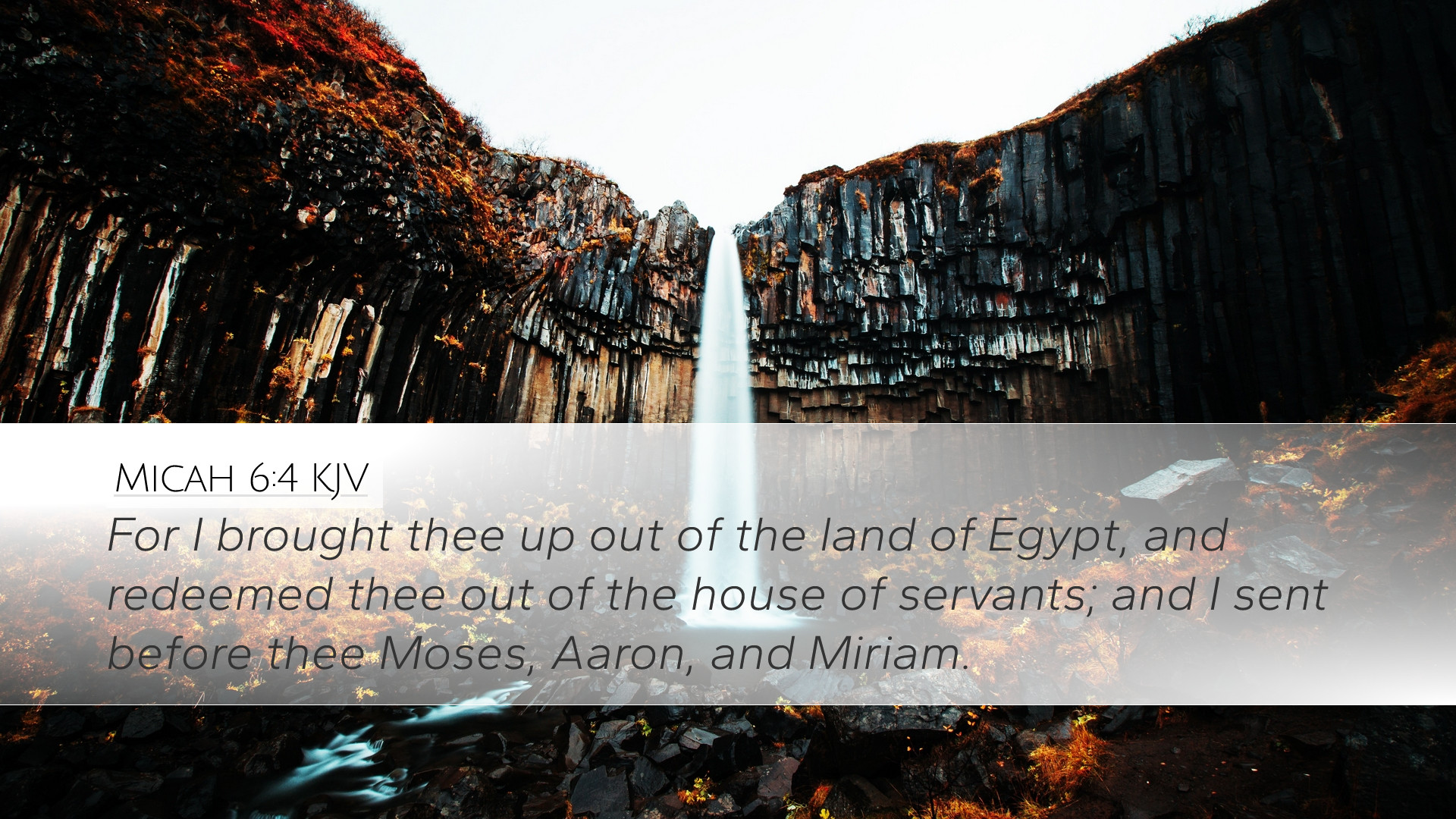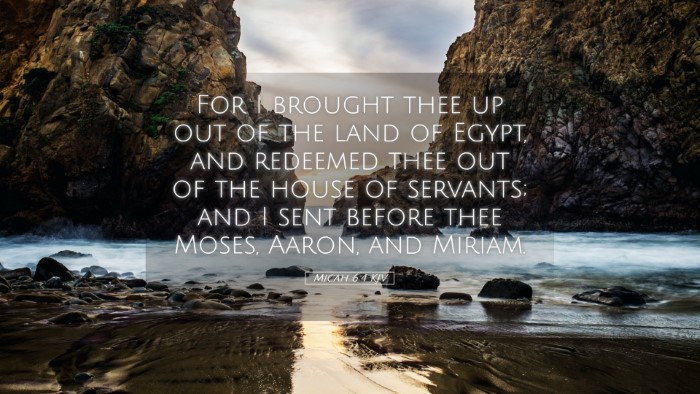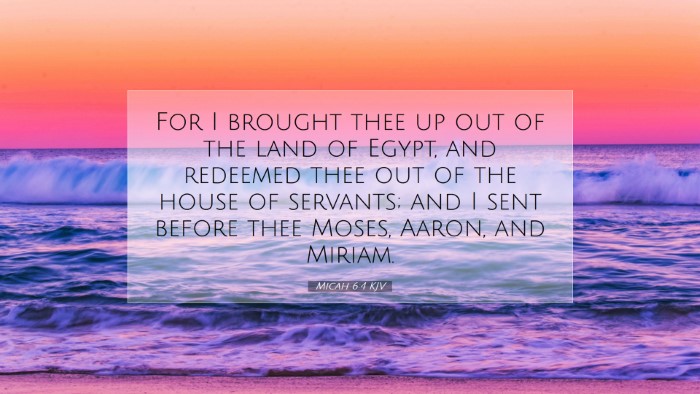Old Testament
Genesis Exodus Leviticus Numbers Deuteronomy Joshua Judges Ruth 1 Samuel 2 Samuel 1 Kings 2 Kings 1 Chronicles 2 Chronicles Ezra Nehemiah Esther Job Psalms Proverbs Ecclesiastes Song of Solomon Isaiah Jeremiah Lamentations Ezekiel Daniel Hosea Joel Amos Obadiah Jonah Micah Nahum Habakkuk Zephaniah Haggai Zechariah MalachiMicah 6:4
Micah 6:4 KJV
For I brought thee up out of the land of Egypt, and redeemed thee out of the house of servants; and I sent before thee Moses, Aaron, and Miriam.
Micah 6:4 Bible Commentary
Commentary on Micah 6:4
Verse Reference: Micah 6:4
"For I brought you up from the land of Egypt and redeemed you from the house of bondage; and I sent before you Moses, Aaron, and Miriam."
Introduction
This verse forms a declaration of God’s past actions and a reminder of His covenant loyalty. The prophet Micah, addressing the people of Israel, relays God’s voice which recounts His mighty acts of deliverance and guidance.
Historical Context
Micah prophesied during a time of social injustice, idolatry, and moral decay in the Kingdom of Judah. This verse roots the nation’s identity in God’s past redemptive work, particularly the Exodus from Egypt, which serves as a central theme in Jewish consciousness.
Theological Significance
The reference to “Egypt” symbolizes slavery and oppression, while “redemption” denotes liberation and restoration. God emphasizes His role as the Deliverer, highlighting that freedom from physical bondage leads to a deeper spiritual understanding of divine grace.
Commentary Insights
-
Matthew Henry:
Henry interprets this verse as a foundational reminder of God’s redemptive history. He explains that the bringing up from Egypt illustrates God’s active involvement in the lives of His people, serving not only as a historical event but also a paradigm of spiritual empowerment.
-
Albert Barnes:
Barnes emphasizes the covenantal relationship depicted in this verse; he notes that God’s declaration acts as an appeal to Israel's obedience and faithfulness in response to His previous deliverance. The mention of leaders—Moses, Aaron, and Miriam—highlights the structure of divine guidance and human agency working together in God’s plan.
-
Adam Clarke:
Clarke examines the multifaceted roles of the figures mentioned. He notes that Moses symbolizes the Law, Aaron represents the priesthood, and Miriam, as a prophetess, signifies worship and song. Together, they represent the complete guidance provided by God throughout the journey of His people.
Application for Today
This verse serves as a reminder for believers today of God’s faithfulness and His past redemptive acts. The historical context of God’s intervention in human history should inspire contemporary believers to deeply trust in His promises and recognize His sovereign authority in our lives.
As pastors and theologians reflect on this passage, it calls for a consideration of how congregations understand their own histories of redemption. It invites engagement with God’s past acts as a source of hope and encouragement in current struggles.
Conclusion
Micah 6:4 poignantly encapsulates the essence of divine redemption and establishes a framework for understanding Israel's relationship with God. It resonates through time, reminding God’s people of His enduring faithfulness and the call to respond in obedience and gratitude.


